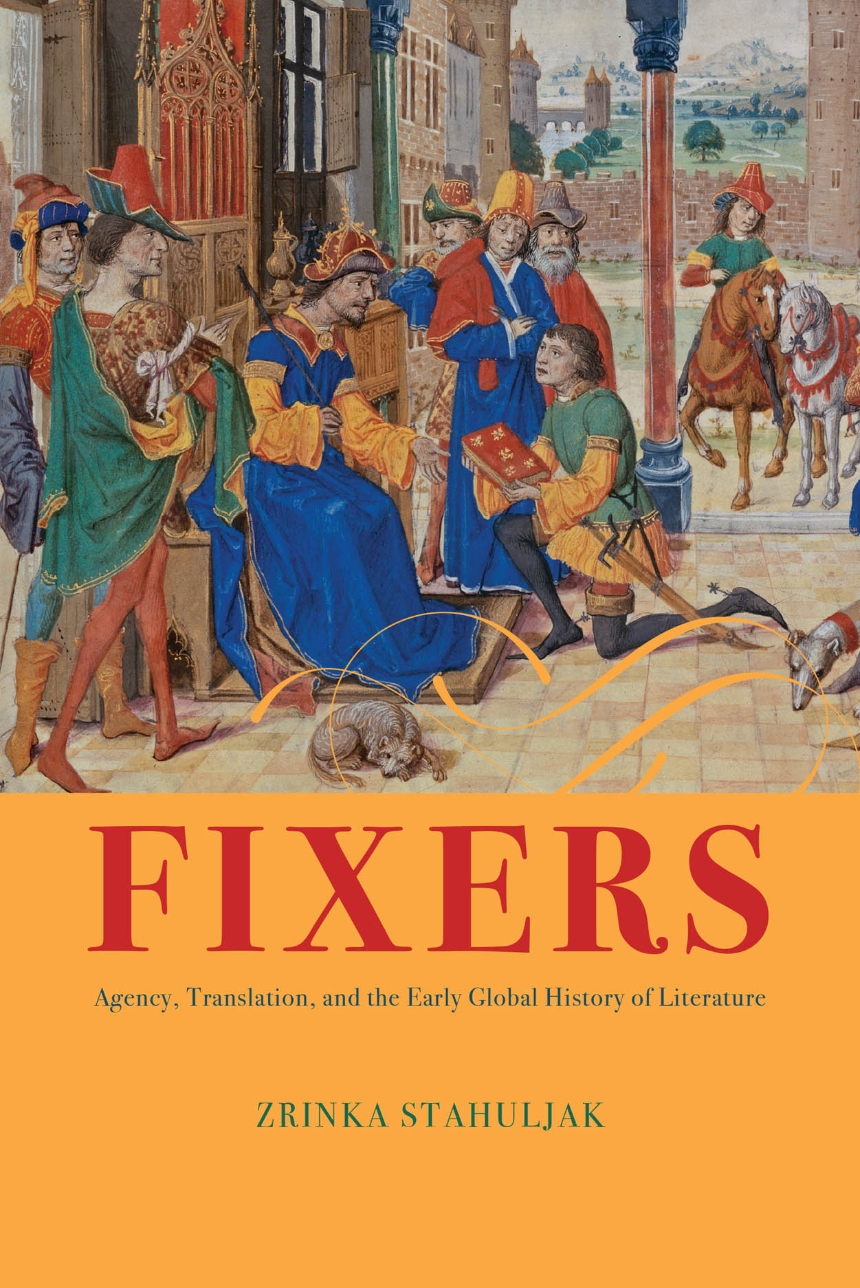Fixers
Agency, Translation, and the Early Global History of Literature
9780226830407
9780226830391
9780226830414
Fixers
Agency, Translation, and the Early Global History of Literature
A new history of early global literature that treats translators as active agents mediating cultures.
In this book, Zrinka Stahuljak challenges scholars in both medieval and translation studies to rethink how ideas and texts circulated in the medieval world. Whereas many view translators as mere conduits of authorial intention, Stahuljak proposes a new perspective rooted in a term from journalism: the fixer. With this language, Stahuljak captures the diverse, active roles medieval translators and interpreters played as mediators of entire cultures—insider informants, local guides, knowledge brokers, art distributors, and political players. Fixers offers nothing less than a new history of literature, art, translation, and social exchange from the perspective not of the author or state but of the fixer.
In this book, Zrinka Stahuljak challenges scholars in both medieval and translation studies to rethink how ideas and texts circulated in the medieval world. Whereas many view translators as mere conduits of authorial intention, Stahuljak proposes a new perspective rooted in a term from journalism: the fixer. With this language, Stahuljak captures the diverse, active roles medieval translators and interpreters played as mediators of entire cultures—insider informants, local guides, knowledge brokers, art distributors, and political players. Fixers offers nothing less than a new history of literature, art, translation, and social exchange from the perspective not of the author or state but of the fixer.
Reviews
Table of Contents
List of Figures
On Translations and Terminology
Introduction Fixers: Toward an Alternative History of Translation and Literature
Part I. Historical Realities: Strategy, Loyalty, and Gift
One The Politics of Translation: Foreign Language Acquisition, Conversion, and Colonization (Thirteenth- and Fourteenth-Century Crusade Treatises)
Two The Economy of Translation: Missionaries to the Mongol Empire, Pilgrims to the Holy Land, and the Gift of Languages (Thirteenth to Fifteenth Centuries)
Part II. Disciplinary Realities: Authorship, Genre, and Literary History
Three The Ethics of Translation: Loyalty, Commensuration, and Literary Forms in the Fourteenth Century (Machaut, Froissart, Mézières)
Four Fixer Literature: (Pseudo)Translation and Manuscript Illumination (the Fifteenth-Century Court of Burgundy)
Five The Hermeneutics of Translation: Authorship and Genre (the Fifteenth-Century Court of Burgundy)
Conclusion Fixers: Early World Literature in the Age of the Global
Acknowledgments
Appendixes
Notes
Bibliography
Index
On Translations and Terminology
Introduction Fixers: Toward an Alternative History of Translation and Literature
Part I. Historical Realities: Strategy, Loyalty, and Gift
One The Politics of Translation: Foreign Language Acquisition, Conversion, and Colonization (Thirteenth- and Fourteenth-Century Crusade Treatises)
Two The Economy of Translation: Missionaries to the Mongol Empire, Pilgrims to the Holy Land, and the Gift of Languages (Thirteenth to Fifteenth Centuries)
Part II. Disciplinary Realities: Authorship, Genre, and Literary History
Three The Ethics of Translation: Loyalty, Commensuration, and Literary Forms in the Fourteenth Century (Machaut, Froissart, Mézières)
Four Fixer Literature: (Pseudo)Translation and Manuscript Illumination (the Fifteenth-Century Court of Burgundy)
Five The Hermeneutics of Translation: Authorship and Genre (the Fifteenth-Century Court of Burgundy)
Conclusion Fixers: Early World Literature in the Age of the Global
Acknowledgments
Appendixes
Notes
Bibliography
Index
